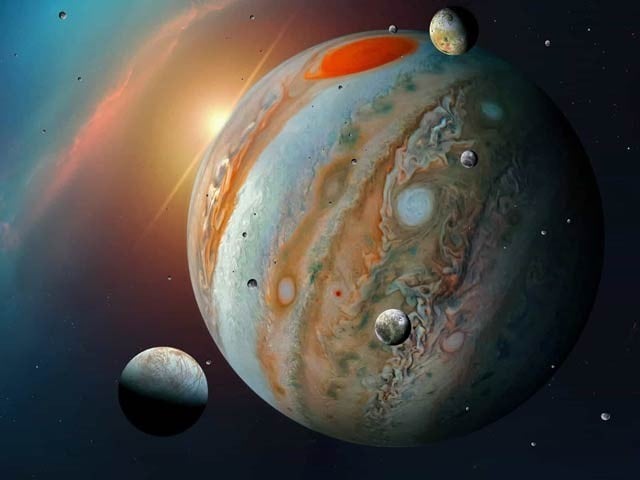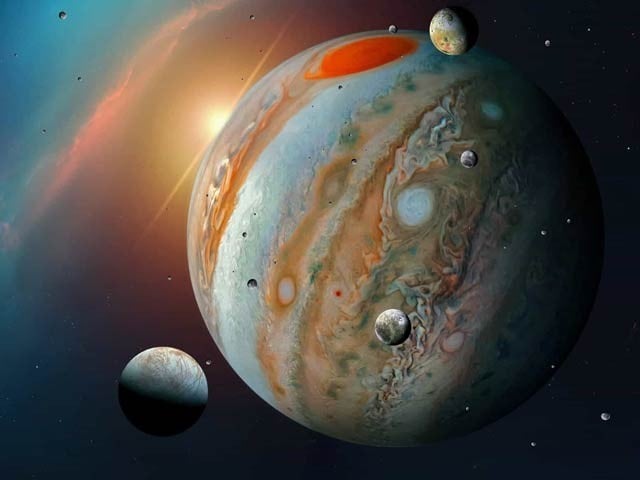
Jupiter has 92 moons and now it has become the planet with the most moons. Photo: File
Washington: The competition between the two planets in the solar system for more moons continues. New moons are often discovered between the planets Jupiter and Saturn. Now, with the discovery of new moons, Jupiter has become the planet with the most moons in the solar system.
In 2019, Saturn was at the forefront of this race, now the largest planet of the solar system, Jupiter, has received not one or two, but 12 new moons, after which Jupiter is on top with 92 moons, while Saturn has 83 moons.
The names of these moons have not been named yet, but it has been officially announced by the International Astronomical Union’s Minor Planet Center, which maintains a record of minor planets in the solar system.
Most of these moons were discovered by Scott Shepard, who is associated with the Carnegie Center for Science. They were looking for the ninth planet of the solar system to find many of Jupiter’s planets.
These moons are very small and dim, making them difficult to see. But now we have excellent binoculars that are capable of extraordinary zooming. This is the reason why we are now seeing even very small planets. 9 of Jupiter’s 12 moons are orbiting Jupiter on long and distant orbits and are retrograde. These moons were discovered in the year 2021 and 2022, which have now been formally confirmed.
It is expected that this will further help in understanding the planet Jupiter.
(function(d, s, id){
var js, fjs = d.getElementsByTagName(s)[0];
if (d.getElementById(id)) {return;}
js = d.createElement(s); js.id = id;
js.src = “//connect.facebook.net/en_US/sdk.js#xfbml=1&version=v2.3&appId=770767426360150”;
fjs.parentNode.insertBefore(js, fjs);
}(document, ‘script’, ‘facebook-jssdk’));
(function(d, s, id) {
var js, fjs = d.getElementsByTagName(s)[0];
if (d.getElementById(id)) return;
js = d.createElement(s); js.id = id;
js.src = “//connect.facebook.net/en_GB/sdk.js#xfbml=1&version=v2.7”;
fjs.parentNode.insertBefore(js, fjs);
}(document, ‘script’, ‘facebook-jssdk’));



